Abstract
Since the appearance of DDT-resistance in houseflies in 1947, over 30 mosquito species have developed resistance to this and other commonly used insecticides. Much knowledge has been gained concerning the mechanism of resistance in insects but, in general, this phenomenon cannot be explained in terms of a single factor common to all resistant species.
Enzymic detoxication of DDT to DDE has been found in the study reported to be a major factor in the resistance of several mosquito species, particularly Aedes aegypti. However, such correlation could not be established in a highly DDT-resistant strain of Culex pipiens fatigans originating in Delhi, India. Furthermore, resistance of the latter strain to o-chloro-DDT and o,p-DDT cannot be attributed to a detoxication process since these compounds are refractory to dehydrochlorination both in vivo and in vitro. Quantitative data on metabolism of DDT derivatives are given and other possible mechanisms of resistance are discussed.
Full text
PDF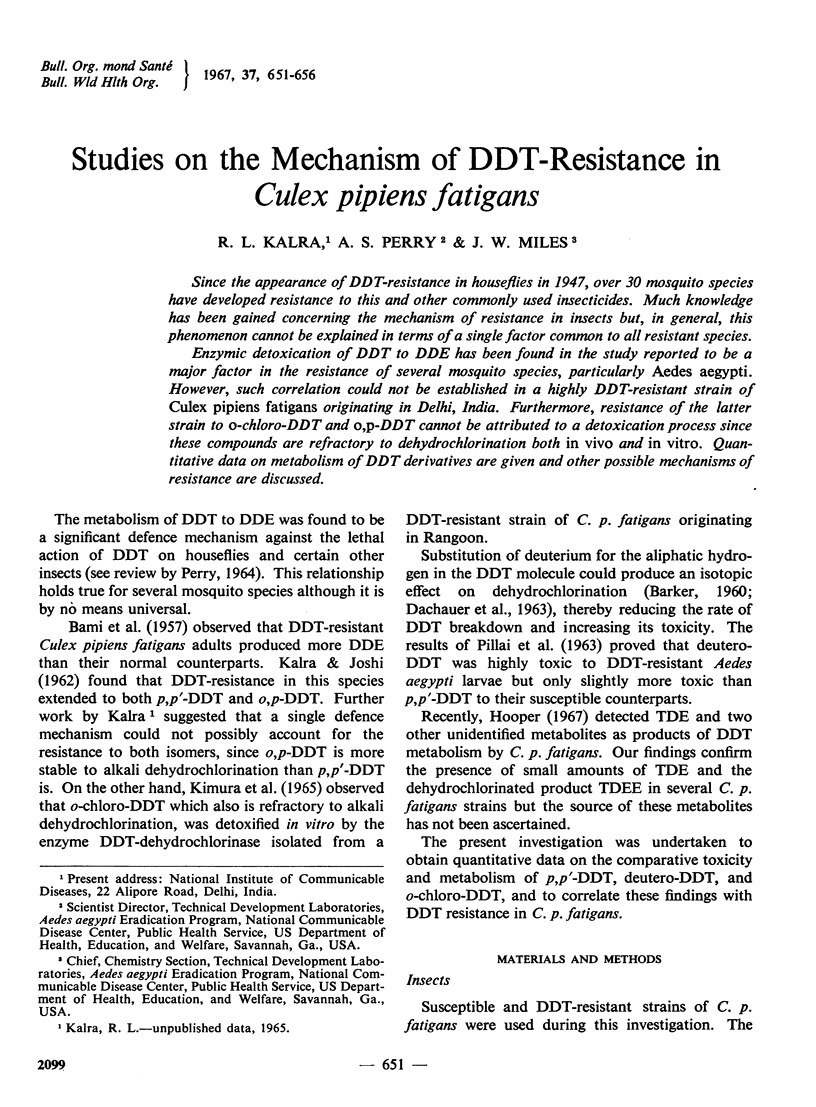
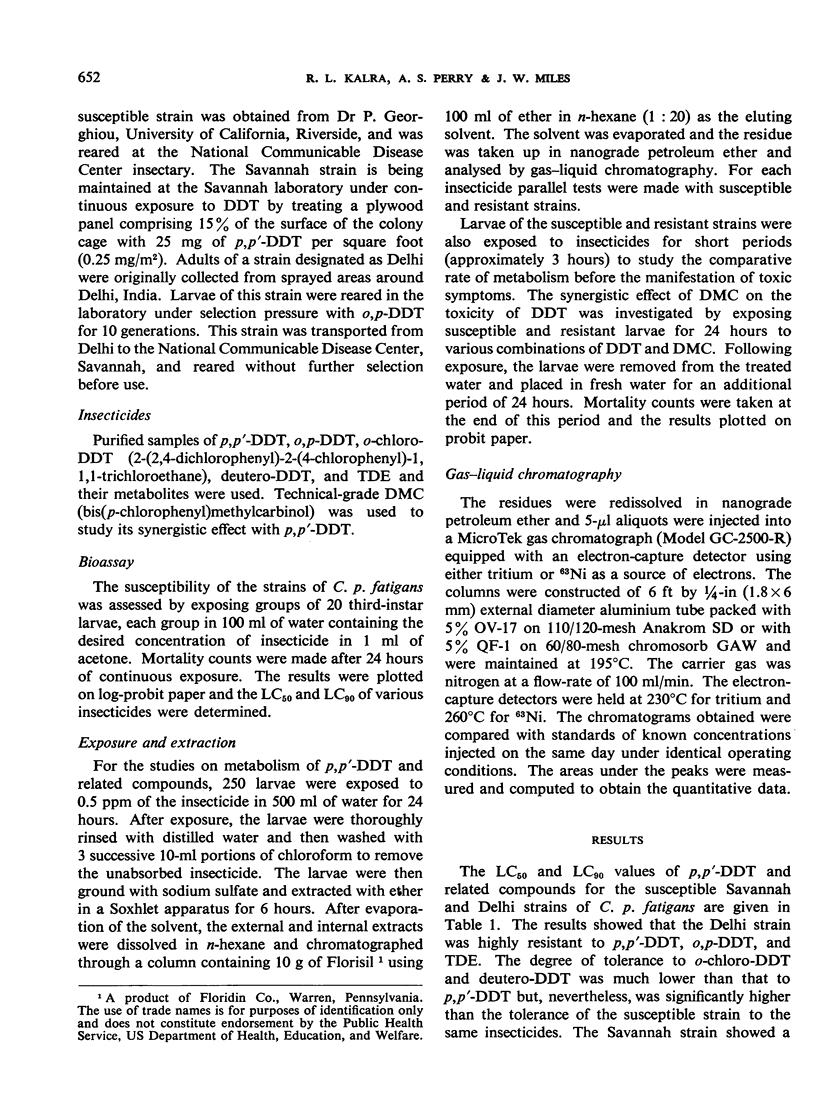
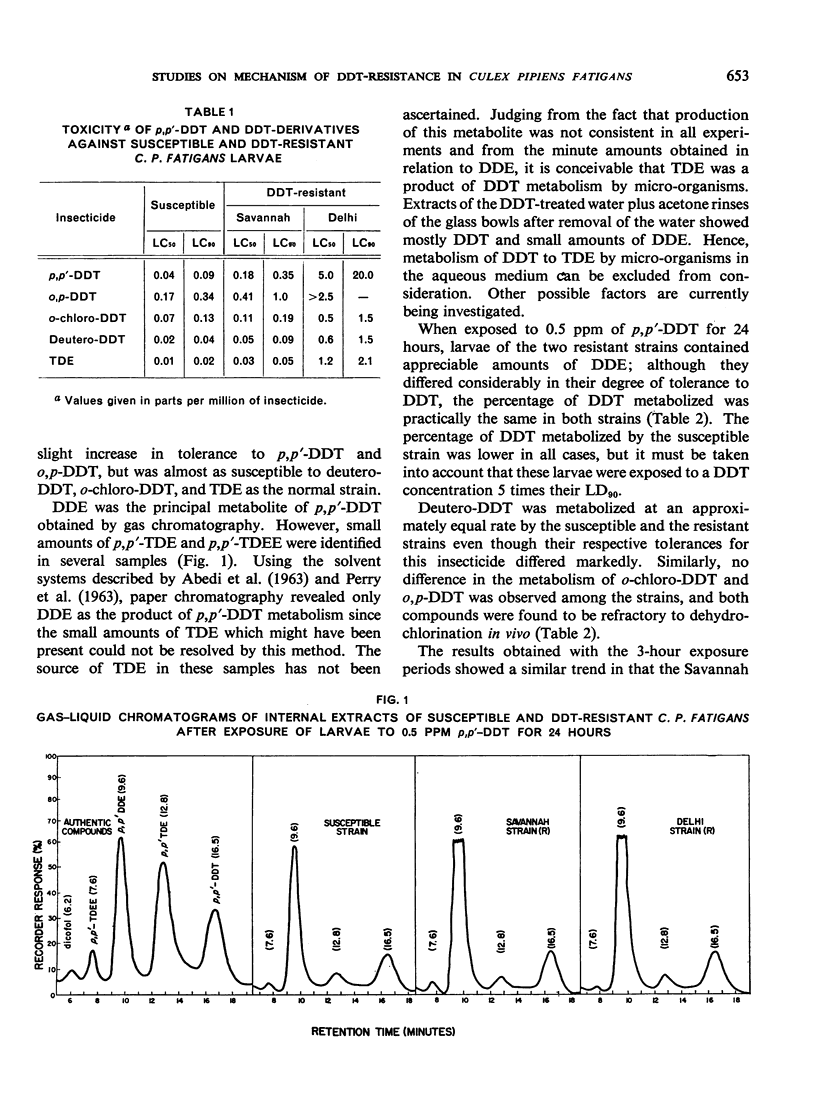
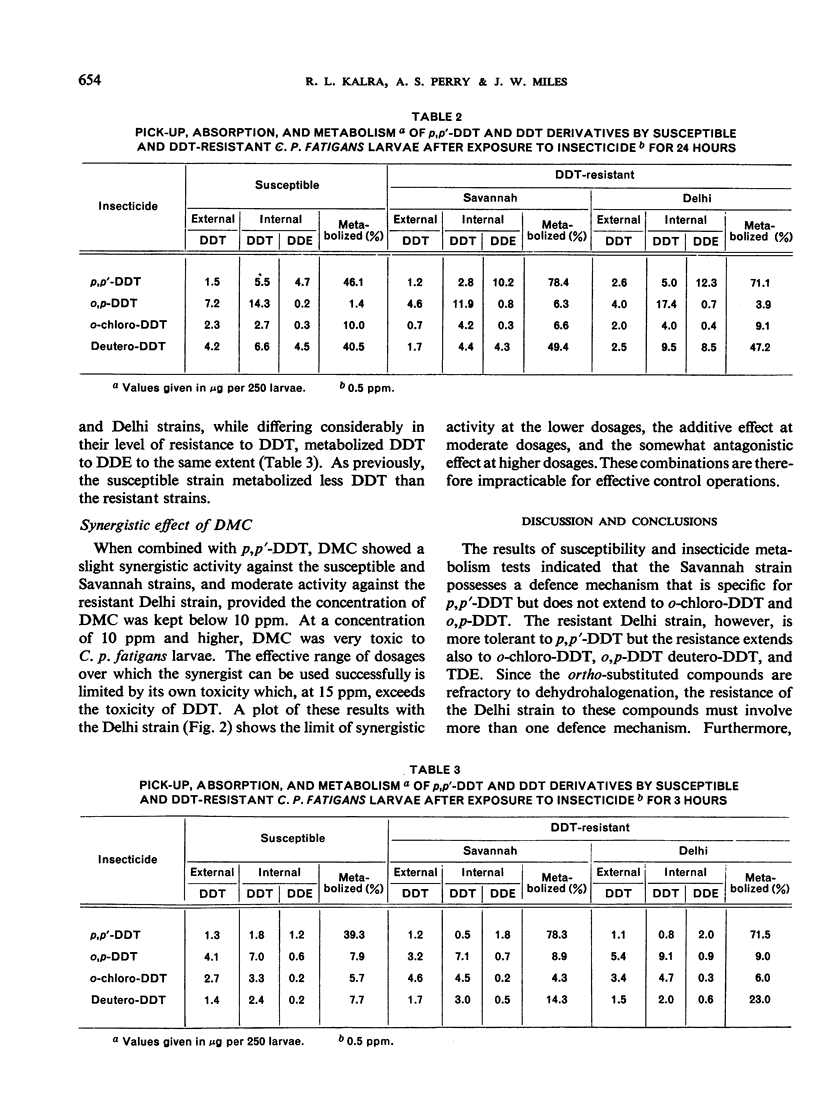
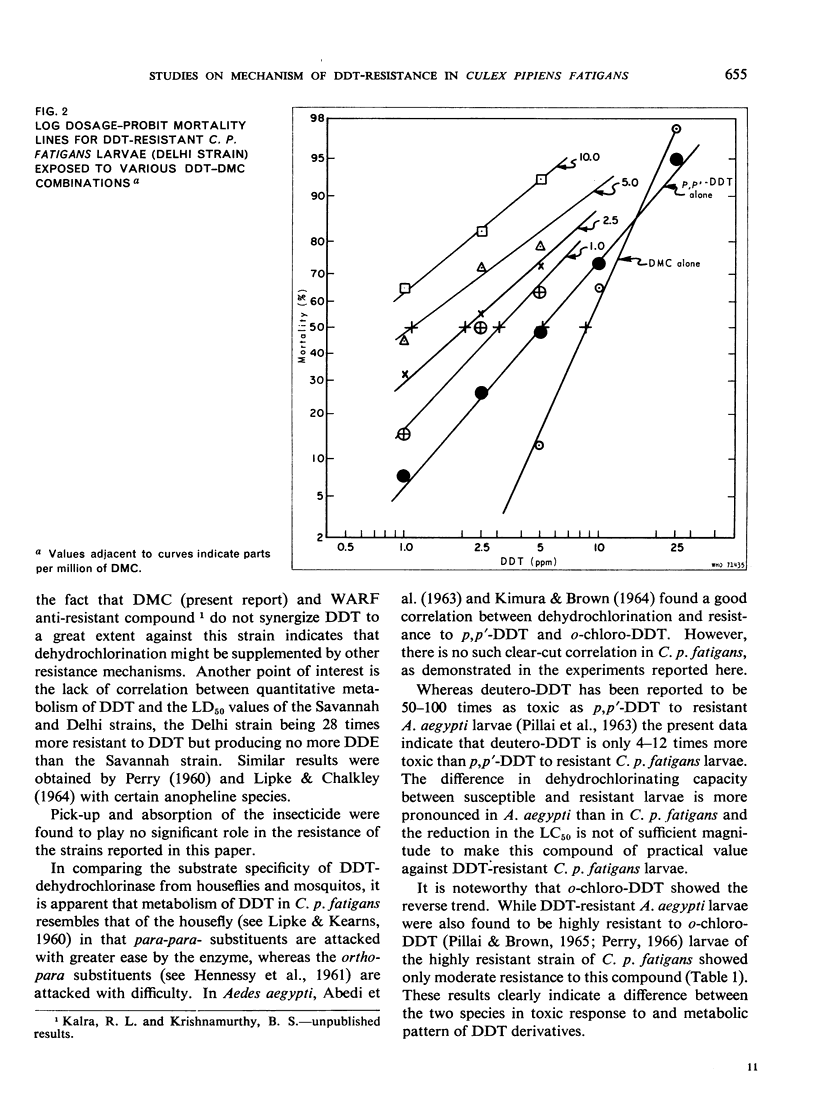
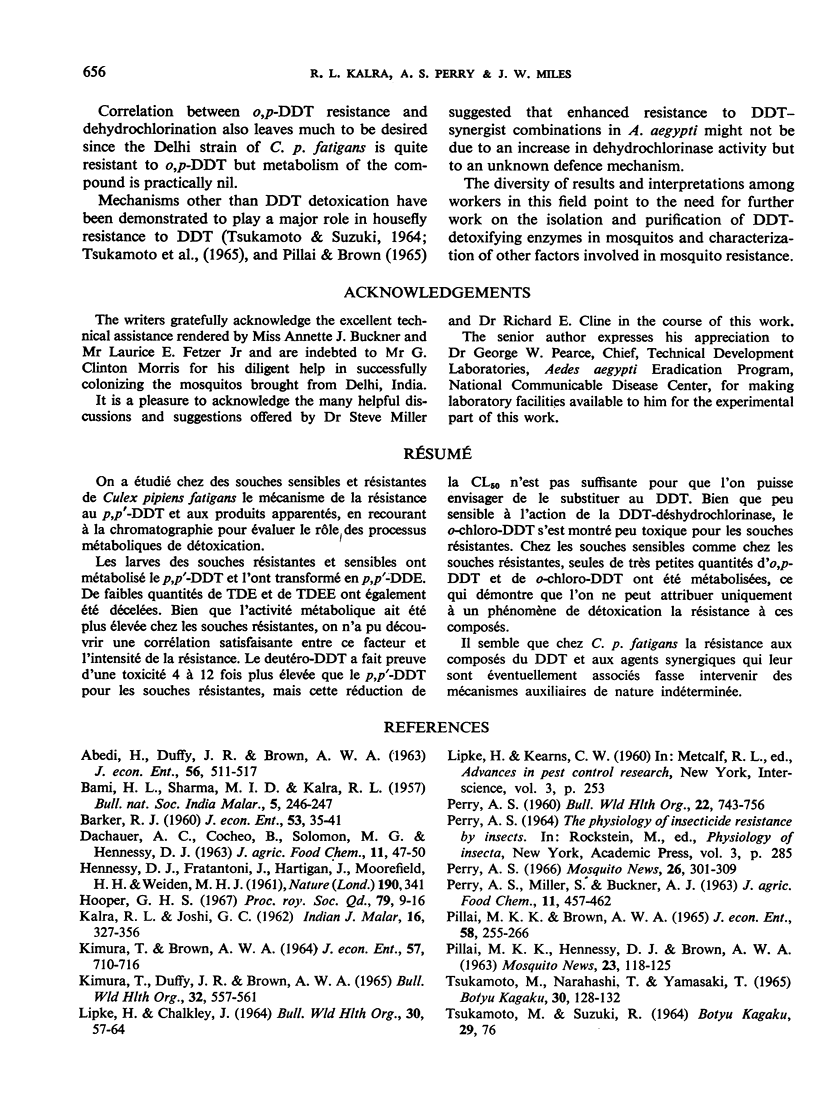
Selected References
These references are in PubMed. This may not be the complete list of references from this article.
- HENNESSY D. J., FRATANTONI J., HARTIGAN J., MOORE-FIELD H. H., WEIDEN M. H. Toxicity of 2-(2-halogen-4-chlorophenyl)-2-(4-chlorophenyl)-1.1.1-trichloroethanes to normal and to DDT-resistant house-files. Nature. 1961 Apr 22;190:341–341. doi: 10.1038/190341a0. [DOI] [PubMed] [Google Scholar]
- KIMURA T., DUFFY J. R., BROWN A. W. DEHYDROCHLORINATION AND DDT-RESISTANCE IN CULEX MOSQUITOS. Bull World Health Organ. 1965;32:557–561. [PMC free article] [PubMed] [Google Scholar]
- LIPKE H., CHALKLEY J. THE CONVERSION OF DDT TO DDE BY SOME ANOPHELINES. Bull World Health Organ. 1964;30:57–64. [PMC free article] [PubMed] [Google Scholar]
- PERRY A. S. Investigations on the mechanism of DDT resistance in certain anopheline mosquitos. Bull World Health Organ. 1960;22:743–756. [PMC free article] [PubMed] [Google Scholar]
- PILLAI M. K., BROWN A. W. PHYSIOLOGICAL AND GENETICAL STUDIES ON RESISTANCE TO DDT SUBSTITUTES IN AEDES AEGYPTI. J Econ Entomol. 1965 Apr;58:255–266. doi: 10.1093/jee/58.2.255. [DOI] [PubMed] [Google Scholar]


